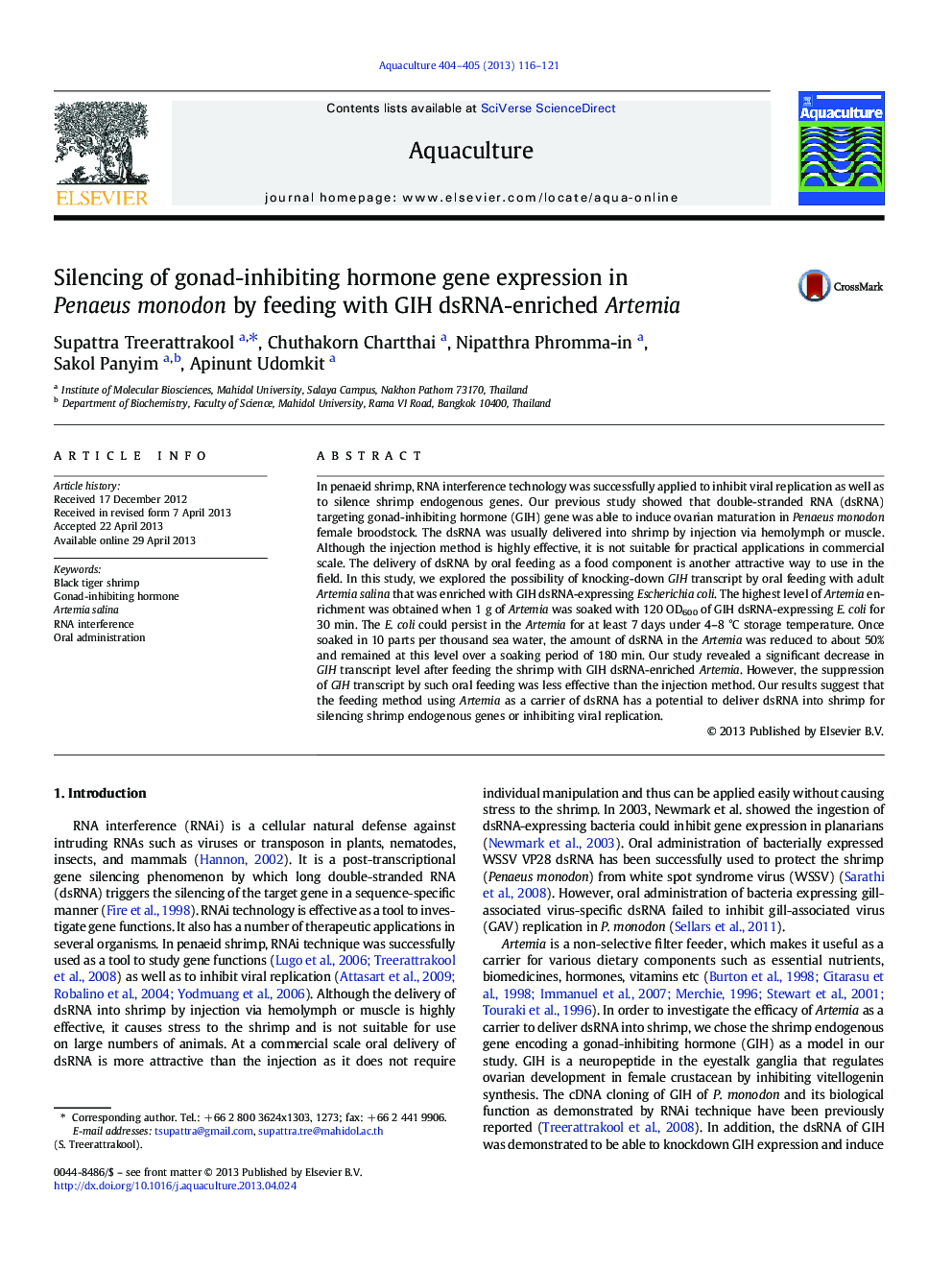| Article ID | Journal | Published Year | Pages | File Type |
|---|---|---|---|---|
| 8495635 | Aquaculture | 2013 | 6 Pages |
Abstract
In penaeid shrimp, RNA interference technology was successfully applied to inhibit viral replication as well as to silence shrimp endogenous genes. Our previous study showed that double-stranded RNA (dsRNA) targeting gonad-inhibiting hormone (GIH) gene was able to induce ovarian maturation in Penaeus monodon female broodstock. The dsRNA was usually delivered into shrimp by injection via hemolymph or muscle. Although the injection method is highly effective, it is not suitable for practical applications in commercial scale. The delivery of dsRNA by oral feeding as a food component is another attractive way to use in the field. In this study, we explored the possibility of knocking-down GIH transcript by oral feeding with adult Artemia salina that was enriched with GIH dsRNA-expressing Escherichia coli. The highest level of Artemia enrichment was obtained when 1 g of Artemia was soaked with 120 OD600 of GIH dsRNA-expressing E. coli for 30 min. The E. coli could persist in the Artemia for at least 7 days under 4-8 °C storage temperature. Once soaked in 10 parts per thousand sea water, the amount of dsRNA in the Artemia was reduced to about 50% and remained at this level over a soaking period of 180 min. Our study revealed a significant decrease in GIH transcript level after feeding the shrimp with GIH dsRNA-enriched Artemia. However, the suppression of GIH transcript by such oral feeding was less effective than the injection method. Our results suggest that the feeding method using Artemia as a carrier of dsRNA has a potential to deliver dsRNA into shrimp for silencing shrimp endogenous genes or inhibiting viral replication.
Keywords
Related Topics
Life Sciences
Agricultural and Biological Sciences
Aquatic Science
Authors
Supattra Treerattrakool, Chuthakorn Chartthai, Nipatthra Phromma-in, Sakol Panyim, Apinunt Udomkit,
